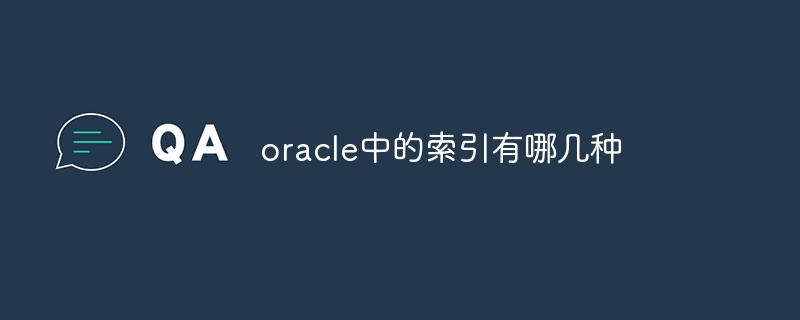The index types supported by Oracle include: B-Tree index: used for fast equal value, range and prefix query Hash index: used for extremely fast equal value query Bitmap index: used to query Boolean field function index : Used to query column space index generated by functions or expressions: Used to query spatial data Full-text index: Used to search document content XML index: Used to query XML data LOB index: Used to query large object data

Index types in Oracle
Index is an important data structure that improves Oracle database query performance. Oracle supports multiple types of indexes to meet different query needs:
1. B-Tree index
- The most commonly used index type.
- Data is stored in a binary tree structure, with fast query and retrieval performance.
- Supports equal value query, range query and prefix query.
2. Hash index
- The data is stored in a hash table structure, and the key value search speed is very fast.
- Only support equal value query, range query or prefix query is not supported.
3. Bitmap index
- is used to store Boolean values (True/False).
- Useful for tables with lots of queries on Boolean fields.
4. Function indexing
- Apply an index to the result column on a function or expression.
- Allows complex queries on indexed columns without first retrieving data from the table.
5. Spatial index
- is used to store spatial data, such as points, lines and polygons.
- Support spatial queries, such as distance query, range query and intersection query.
6. Full-text index
- is used to store document content, such as documents, text fields, etc.
- Supports full-text search, allowing searches within documents based on words or phrases.
7. XML index
- is used to store XML data.
- Supports XPath expressions, allowing fast querying and retrieval of XML data.
8. LOB index
- is used to store large object (LOB) data such as images, documents, and videos.
- Allows specific portions of LOB data to be indexed without loading the entire LOB.
The above is the detailed content of What types of indexes are there in oracle?. For more information, please follow other related articles on the PHP Chinese website!





